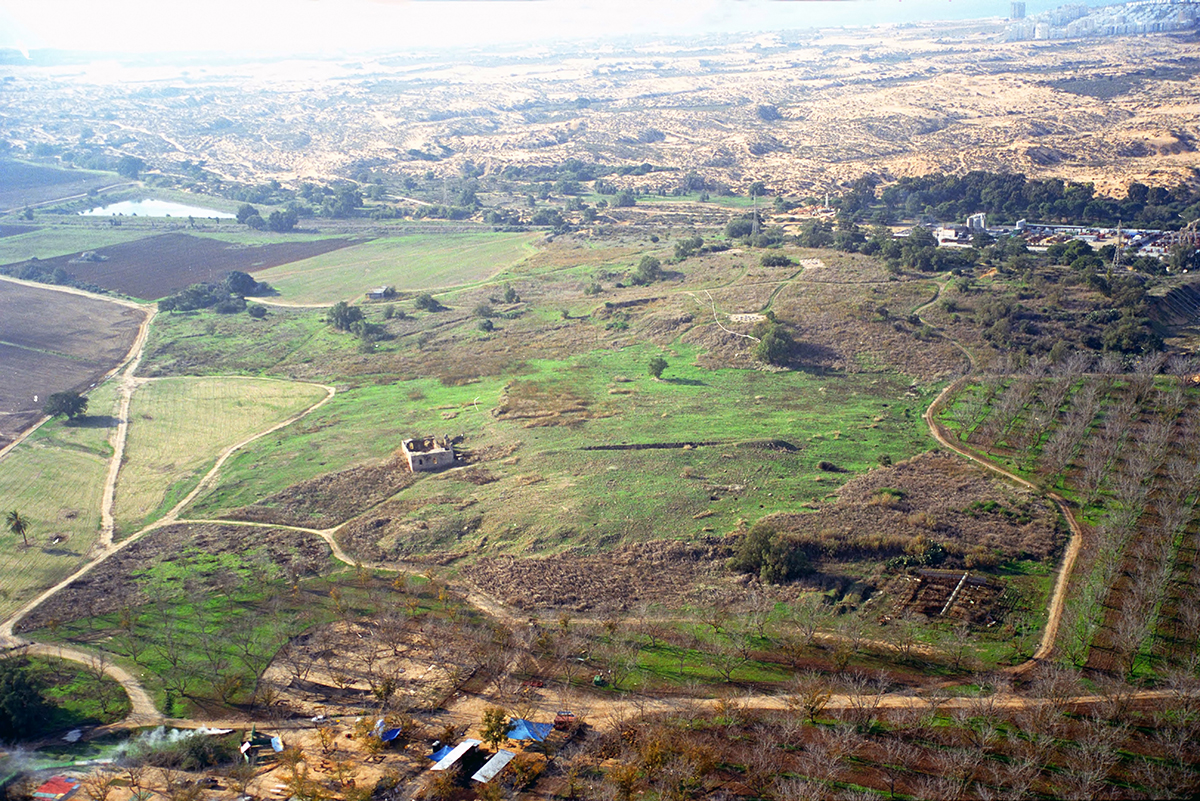

by Luke Chandler
Synopsis: One of five principal Philistine cities, Ashdod enjoyed military and economic significance because of its strategic location along the main highway connecting Egypt with regions to the north.
Ashdod was one of five principal Philistine cities in the Old Testament period. A casual glance at a map suggests it was located on the coast of Canaan, but it actually sat several miles inland, along the international highway connecting Mesopotamia and Anatolia (modern-day Turkey) with Egypt. (A nearby coastal site called Ashdod-Yam was a different town than biblical Ashdod. Its ruins are primarily from the Crusader period.) Biblical Ashdod's location on this transcontinental route is important for understanding the only biblical story we have from the city.
The Philistines defeated Israel at Ebenezer in 1 Samuel 4 and captured the Ark of the Covenant. In chapter 5, they brought the captured Ark as a trophy to Ashdod and set it up in the temple of their idol, Dagon. The following morning, however, pagan priests discovered the idol had fallen face downward on the ground before the Ark of God. They promptly set it back up, but the next morning, discovered that Dagon had fallen and broken before God's Ark. The text then describes outbreaks of tumors following the Ark as the Philistines evacuated it from Ashdod to Gath, before finally returning it to Israel.
It was especially unfortunate for the Philistines that they first took the Ark to Ashdod. The city's location on the international highway brought a steady stream of merchants and other travelers from Phoenicia, Syria, Babylonia, Assyria, Egypt, and elsewhere. One can imagine the public spectacle as the Ark was carried to Dagon's temple, only to be whisked away shortly afterward in humiliation. How many people learned about Dagon and the Ark as they passed through Ashdod on their travels?
We can see God's foresight in choosing ancient Canaan for His people. It connected Africa, Asia, and Europe, so knowledge of Him could naturally spread to other lands. Dagon's fall in Ashdod would be a remarkable story to share. What power could literally bring down a prominent Philistine god? What kind of Deity did those Hebrew hill-dwellers worship?
It is no surprise that Gentiles are aware of God in later stories. David came to be surrounded by Philistines who feared the Lord (2 Sam. 15:18-21). The foreign sailors on Jonah's ship became fearful when they discovered he was fleeing the God of Israel (Jonah 1:7-10). These stories illuminate David's song of praise in 1 Chronicles 16:23-25, "Sing to the LORD, all the earth! … Declare his glory among the nations, his marvelous works among all the peoples! For great is the LORD, and greatly to be praised, and he is to be feared above all gods."
Biblical Ashdod was eventually destroyed and now lies abandoned, but its episode with the Ark reminds us of the power of influence. No one could hide Dagon's fall and God's power in such a prominent location. This relates to what Jesus said in Matthew 5:14-16, "You are the light of the world. A city set on a hill cannot be hidden… Let your light shine before others, so that they may see your good works and give glory to your Father who is in heaven." Each of us is an "Ashdod" somewhere, whether at home, in the workplace, at school, in an organization, or in a community. Like the Ark of the Covenant, we carry the Lord's presence (1 Cor. 3:16; 6:19-20). Do I see myself as an Ark of God, able to bring His light wherever I happen to be?
Ashdod's Ark encounter also reminds us that God's light shines most brightly in the darkest disaster. He can be glorified in success, but also in the failures of His rebellious people. Israel's loss led to the fear of God in other places, especially among the Philistines. For us, if we primarily seek and share God through things that make us feel #blessed (with loving relationships, financial security, finding a good job, owning a comfortable home, etc.), please remember that people often discover God's greatest blessings through sorrow and loss. It was Jesus' murder, after all, that led so many in the world to hope in Him. Our Lord is able to turn defeat into opportunities for light and glory.
Author Bio: Luke has worked with the North Terrace Church of Christ in the Tampa, FL area for thirteen years. He leads tours to the Bible Lands and has taken part in nine archaeological expeditions in Israel. Luke and his wife, Melanie, have five children. His website is lukechandler.wordpress.com. He can be reached at lukechandler@verizon.net.

Philistine Ashdod is now a large, grassy field with a low mound. It was excavated years ago but nothing significant from biblical times is currently visible. Credit: Todd Bolen/BiblePlaces.com

